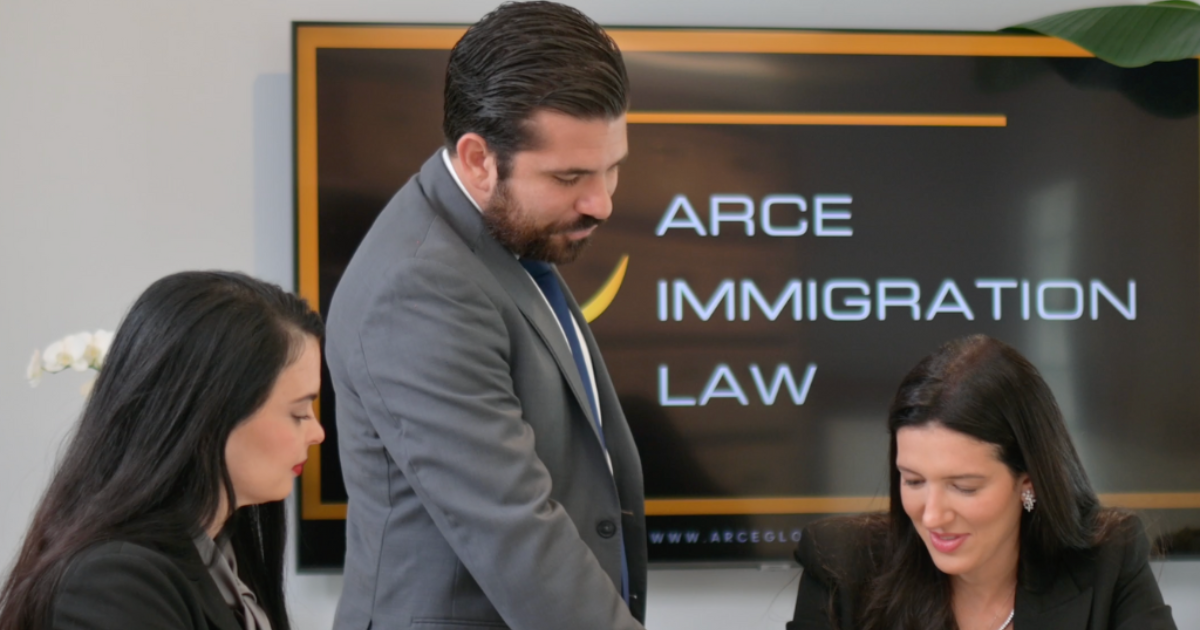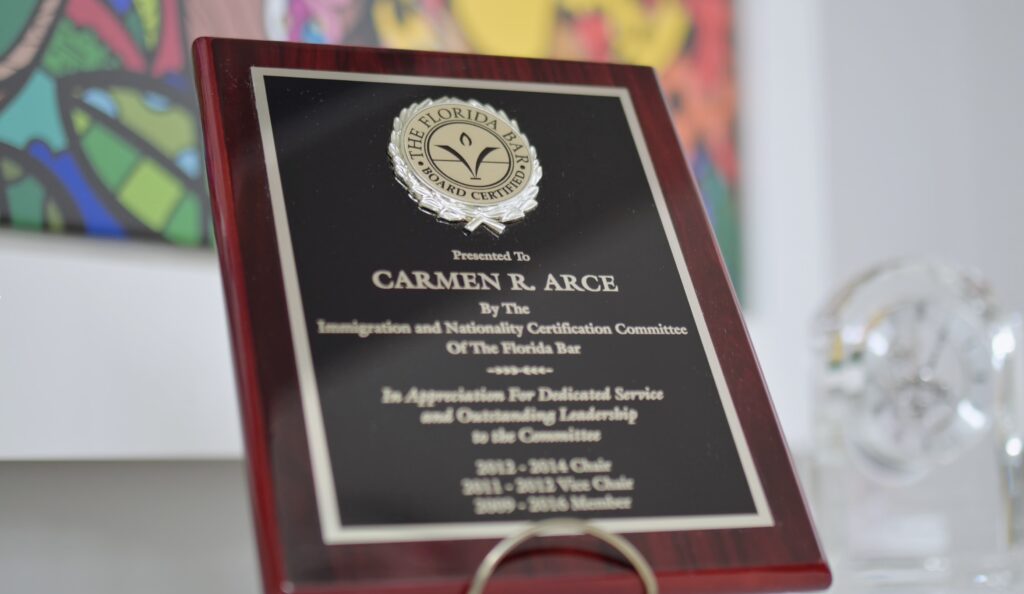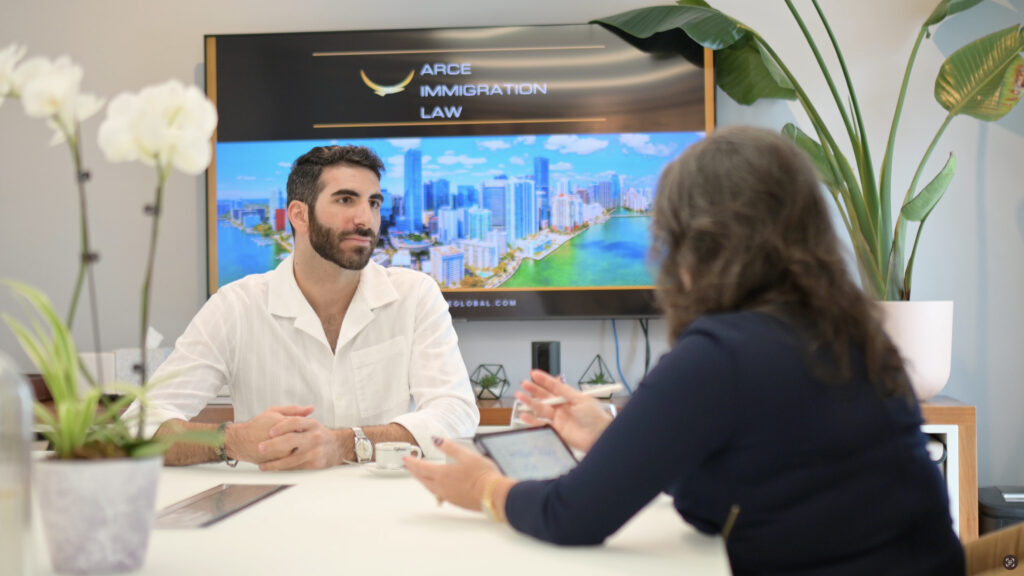
Global talent and innovation: Arce Immigration Law’s migration strategy for US sports
In anticipation of their participation in SFS 25, we interviewed Giorgio Polacco, partner and representative of Arce Immigration Law, a firm specializing in immigration assistance for professionals, athletes, and technical staff looking to work in the US market. In this conversation, Polacco illustrates the crucial role of “Global Talent Mobility” and how strategic immigration consulting—focused particularly on Extraordinary Ability visas (O-1/EB-1)—is not just a legal necessity, but a true driver of growth, innovation, and stability for clubs and leagues. This is a fundamental topic during a moment of historic expansion in the US sports sector, culminating with events like the FIFA World Cup 2026.
The SFS Manifesto promotes inclusion and diversity at all levels of the industry. How does Arce Immigration Law actively support the principle of global talent inclusion, facilitating entry into the United States for professionals, athletes, and technical staff from diverse geographical and cultural backgrounds, and what are the legal challenges in this regard?
“Global Talent Mobility is a principle we fully share in our daily work. The value of an athlete, a coach, or a professional is measured by their ability to enrich an environment, not their geographical origin. Our commitment is to assist people from every corner of the world and from very diverse backgrounds, helping them understand and navigate one of the most complex immigration systems globally. Our role is to ensure that merit finds an equitable space to express itself.
We work to facilitate the entry of talents who may not come from structured federations or consolidated leagues, but who bring dedication, creativity, and high-value sports histories with them. The main challenge lies in the need to translate these journeys into recognizable legal criteria, often by demonstrating achievements obtained in contexts where documentation is not always formalized. It is a job built on listening, cultural sensitivity, and the ability to build a narrative that allows that talent to be understood and recognized in the US market”.
For companies operating in the global sports system, the ability to attract and retain the best international talent is key to resilience and sustainable economic growth. How are Arce Immigration Law’s services positioned to ensure sports organizations and leagues have a migration strategy that guarantees continuity and stability over time for their professional roster?
“In the global sports landscape, retaining the best talent is essential for the growth and technical continuity of a club, a league, or an entire industry like sports. Our firm is positioned as a strategic partner for all organizations looking at the United States with a long-term vision. Our task is not just to obtain the most suitable visa, but to build genuine multi-year migration pathways that integrate with the sports and commercial needs of the organizations.
We collaborate with clubs, academies, and federations to ensure that immigration dynamics harmonize with transfer windows, training cycles, and contractual deadlines. This means avoiding interruptions, delays, or sudden loss of professionals due to visa expiration or poorly managed procedures. Our mission is to allow technical and management staff to focus on the field, offering a stable legal foundation that protects investments and allows for the construction of solid, enduring sports identities”.

The ‘Extraordinary Ability’ visa (O-1 or EB-1 for high-level athletes, coaches, and executives) is crucial for innovation. How does your legal support contribute to identifying, validating, and mobilizing talents that bring new international skills and best practices, accelerating innovation and technical progress in the sports and business sectors?
“Visas intended for ‘Extraordinary Ability’ professionals, such as O-1 and EB-1, are central tools for innovation in the sports sector.
Our work in this area is closely linked to identifying and valuing individuals who represent the best in their discipline. From coaches capable of introducing innovative methodologies, preparators and analysts coming from advanced contexts, to executives who have contributed to the growth of exportable governance models. The added value lies in our ability to translate a technical career into a legal summary that demonstrates its excellence. It’s not a simple collection of documents, but the reconstruction of the professional path as an effective contribution to the development of the sector.
This process allows the United States to import ideas, skills, and mindsets that can transform the entire sports ecosystem. When a top-level professional arrives in the country, they bring a vision that often anticipates global trends. In this context, our role is to ensure that this vision has the permission to enter and contribute immediately to collective progress”.
What are the expectations for the growth of the global sports talent market in the United States in the coming years, in light of the increasing importance of soccer and events like the FIFA Club World Cup 2025 and the FIFA World Cup 2026?
“In recent years, we have observed a clear phenomenon. The United States is becoming a natural destination for global sports talent.
Soccer, in particular, has entered a phase of maturity that is unprecedented. The arrival of major investors, the growth of academies, the interest of new generations, and strategic partnerships between American and European clubs have prepared the ground for explosive growth.
Events like the FIFA Club World Cup 2025 and especially the FIFA World Cup 2026 will act as accelerators. We expect a significant increase in demand for qualified technical staff, performance analysis experts, managerial figures, medical and physiotherapy staff, in addition to increasingly prepared athletes, in the coming years. This transformation does not only concern the elite. Youth sectors are also beginning to benefit from a more scientific approach, fueled by the arrival of professionals trained in highly competitive environments. The United States is building an ecosystem capable of attracting and retaining these profiles, and immigration becomes the engine that allows the system to function and grow”.

You are present at SFS 25, a hub for sustainability and innovation. What specific synergies are you seeking with the sports system and tech companies present, and how do you envision strategic migration consulting becoming a recognized factor in human and professional sustainability in soccer and sports in general?
“Being at SFS25 means engaging not just with clubs and leagues, but with the entire innovation supply chain. Sports medicine, technical material producers, sensor and data analysis companies, businesses designing new-generation fields and infrastructure. Sustainability, for us, is first and foremost human and operational. It serves to create the conditions for the right people to move legally, within certain timeframes, and integrate into projects without disrupting sports cycles. Strategic migration consulting thus becomes a cross-cutting enabler.
When a club launches a performance center with advanced medical equipment or implements injury prevention protocols, the mobility of specialists who know how to install, calibrate, and train local staff is required. Without the right visa at the right time, the project remains on paper. The same applies to those who bring new sports materials or to companies that build ‘smart’ fields. The value is not just the product, but the know-how that accompanies it, and that know-how must be able to enter, operate, and be transferred.
In practice, we transform international mobility into a structural advantage. From the doctor who certifies a protocol, the engineer who optimizes a surface, the technician who enables predictive maintenance, to the analyst who makes data useful on the field. Sustainability becomes measurable when people can do their job, in the right place and at the right time. And this, in today’s sports industry, is also and above all, immigration done right”.



